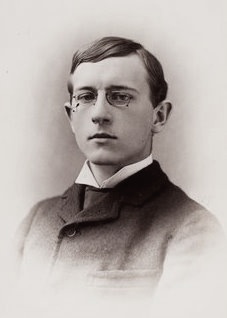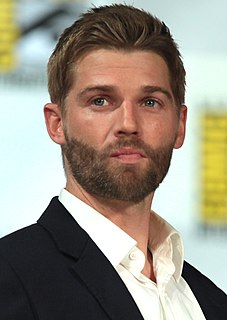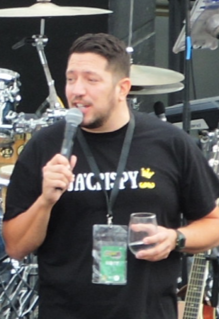A Quote by Chris Hardwick
The goal of almost every comic is to find a comedy voice - a specific point of view that an audience can latch onto.
Related Quotes
I hope that 'Gambit' doesn't take ten years, but it takes a little honing to get that tone and that voice exactly right. The character has such a specific voice in the comic, in the same way that Deadpool has a specific voice in the comic, that we want to make sure that we capture that voice on the page.
One of the things that's important for anybody adapting source material that is primarily a male buddy picture is to find ways to latch on to strong female characters in the piece and bring them to the forefront and celebrate their point of view alongside the men; otherwise, it becomes a sausage party, and it's a singular point of view.
But every point of view is a point of blindness: it incapacitates us for every other point of view. From a certain point of view, the room in which I write has no door. I turn around. Now I see the door, but the room has no window. I look up. From this point of view, the room has no floor. I look down; it has no ceiling. By avoiding particular points of view we are able to have an intuition of the whole. The ideal for a Christian is to become holy, a word which derives from “whole.
Everybody you work with sees what you're doing from a different point of view, a very specific point of view. So, if someone is lighting, they're seeing it from that point of view. A production designer is seeing it from the placement of furniture that tells you about the character. Everything that goes into the room should tell you about the person who lives in that room.
This is going to sound pretentious, but I like comedy that addresses something I find either worrisome or interesting in my life. I like Louis C.K.'s stuff or Bill Burr's stuff. I feel like there's comedy where someone will think of something that they think will work comedically, and then they reverse engineer that point of view so they can say that funny thing. The comedians I like, it could be an allusion, but it feels like their point of view comes first and then the jokes are a reflection of what they actually believe, or are frightened of, or are curious about, or are interested in.


































